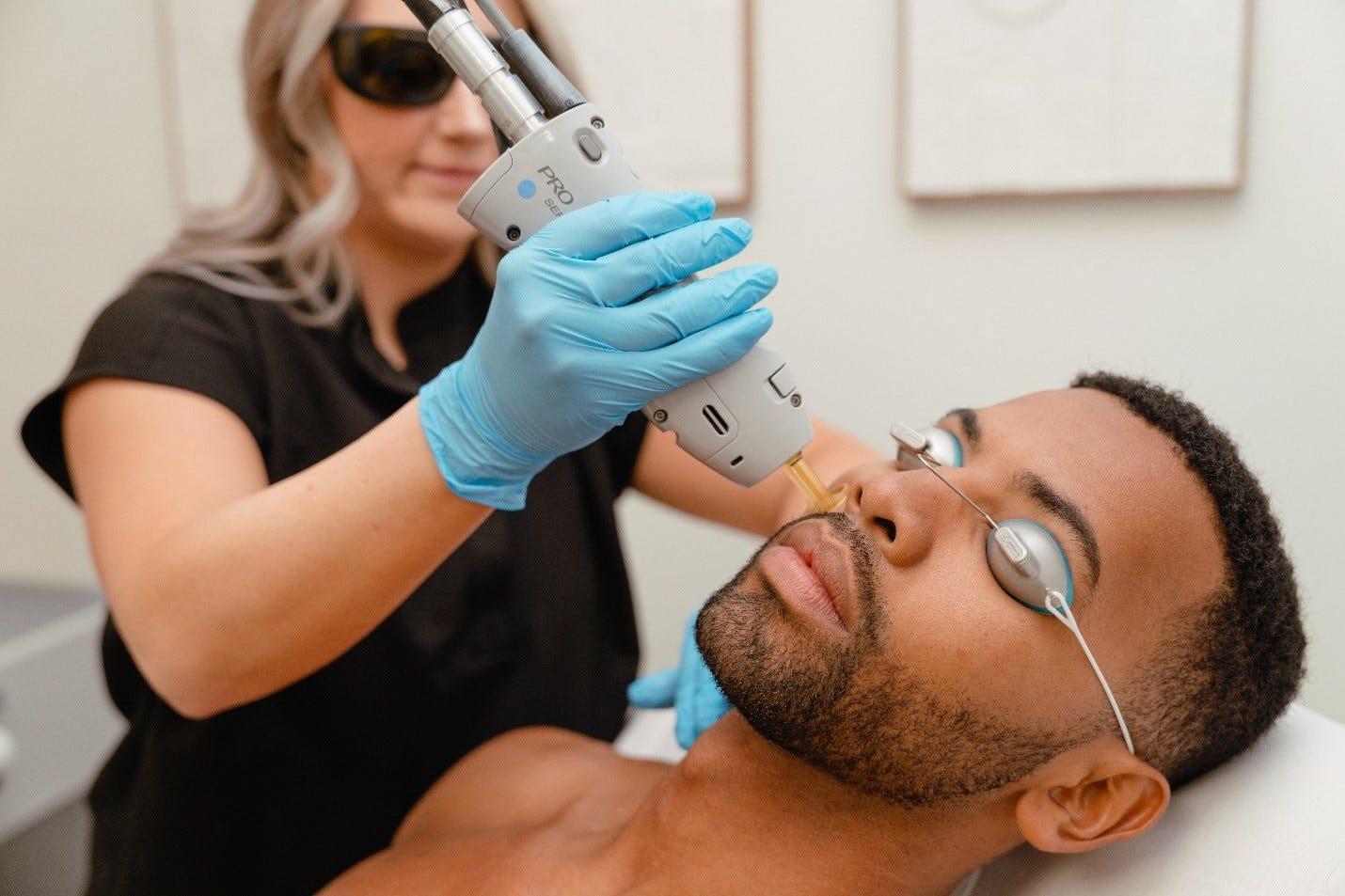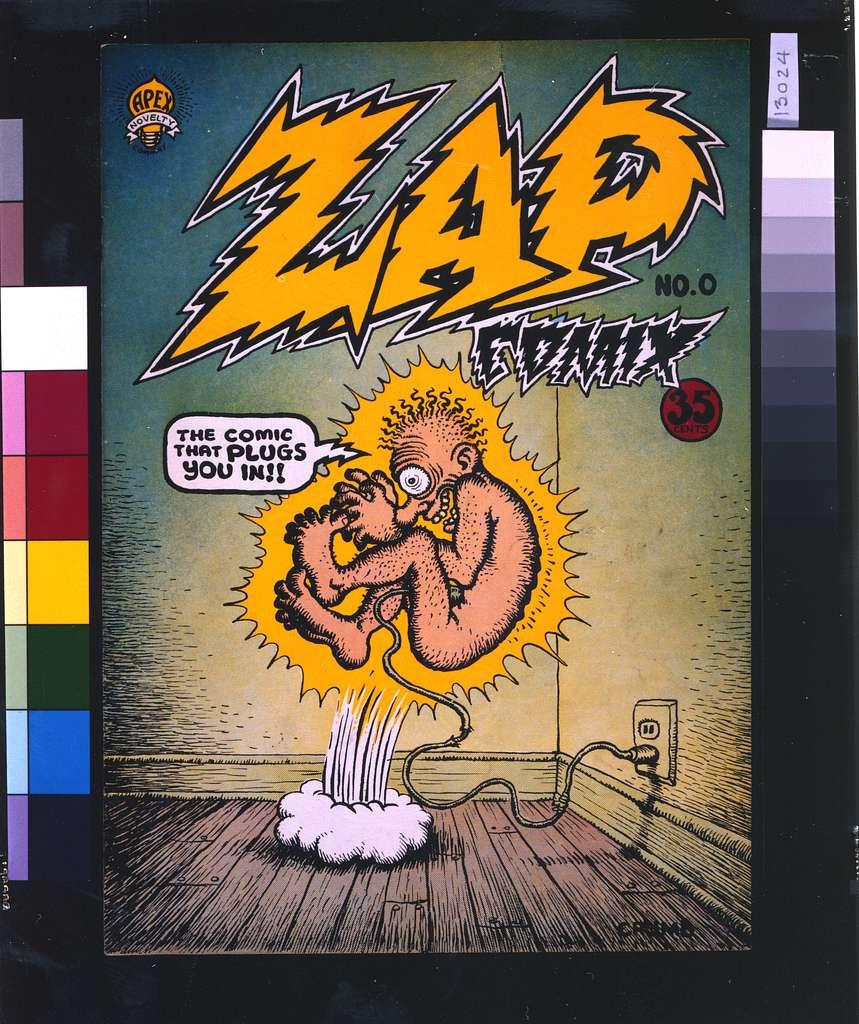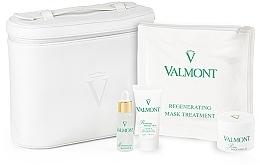In the quest for perpetually smooth skin, many have turned their eyes—and lasers—toward the promise of hair-free bliss. “The Smooth Truth: Unveiling Laser Face Hair Side Effects” dives beneath the glitzy allure of sleek cheeks and flawless foreheads, shedding light on the journey not often shared. Imagine a world where morning routines don’t include the frantic search for tweezers or the prickly touch of a razor. Sounds dreamy, right? But wait, every dream has its shadows. Join us as we unravel the candid, unvarnished details of laser face hair removal, exploring the glow and the gloom, and everything in between. Welcome to the smooth truth, where science meets self-care, and beauty’s secrets come to life.
Table of Contents
- What Happens Beneath the Surface: The Science Behind Laser Hair Removal
- Zap with Caution: Common Side Effects You Might Encounter
- Sensitive Spots: Special Considerations for Facial Skin
- Choosing the Right Laser: Factors to Keep in Mind
- Post-Procedure Pampering: Essential Aftercare Tips
- Q&A
- To Conclude

What Happens Beneath the Surface: The Science Behind Laser Hair Removal
The sensation of smooth, hair-free skin is undeniably pleasing, and laser hair removal is the technology that can deliver this joy. The magic happens beneath the skin’s surface, where beams of light target your hair follicles. These light beams are tuned to specific wavelengths which are absorbed by the pigment (melanin) in the hair. The absorbed light energy is then converted into heat, effectively destroying the follicle and preventing new hair from growing.
To understand this process better, it’s essential to look at the **science of selective photothermolysis**. This complex-sounding term simply means that the laser precisely targets the melanin in hairs without damaging the surrounding skin. Here’s how it happens:
* **Melanin Absorption:** The laser emits a specific wavelength that melanin can absorb.
* **Thermal Destruction:** The absorbed energy turns to heat, damaging the follicle.
* **Selective Impact:** The process minimizes harm to surrounding cells due to the laser’s precision.
Adding to this, the cycle of hair growth itself plays a critical role. Hair grows in three phases: anagen (growth), catagen (transitional), and telogen (resting). For the laser to be effective, the hair needs to be in the **anagen phase**, as this is when the hair is actively growing and connected to the follicle. That’s why multiple sessions are often necessary to catch all hairs in their growth phase.
| Hair Growth Phase | Laser Impact |
|---|---|
| Anagen (Growth) | Optimal |
| Catagen (Transitional) | Less Effective |
| Telogen (Resting) | Not Effective |
individual skin and hair types also influence laser hair removal outcomes. Darker hair typically absorbs more laser energy, making it easier to treat. On the other hand, lighter hair, with less melanin, can pose a challenge. Innovations in laser technology now offer specialized lasers for different **skin and hair types**, but results can still vary. Understanding your own unique combination of skin, hair type, and hair growth phases can help you set realistic expectations and achieve the smooth, silky skin you desire.

Zap with Caution: Common Side Effects You Might Encounter
When venturing into the world of laser face hair removal, it’s essential to know that while results can be sleek, the journey might have a few bumps along the way. One of the most common side effects you might encounter is **skin irritation**. This can manifest as redness, swelling, or mild discomfort, often similar to a light sunburn. Typically, these symptoms dissipate within a few hours to a couple of days. Applying soothing gels or cool compresses can help ease any temporary irritation.
An equally important aspect to consider is the possibility of **pigment changes**. Laser treatments can sometimes cause hyperpigmentation (darkening) or hypopigmentation (lightening) of the skin. These changes are generally temporary but can occasionally become permanent, especially in individuals with darker skin tones. Using sunscreen and following post-treatment care instructions can significantly minimize these risks.
Another side effect that might surprise you is the appearance of **crusting** in the treated area. This happens when tiny scabs form over the laser targets—a natural part of the healing process. The key here is to keep the area moisturized and avoid picking at the crusts, as this can lead to scarring or infection. Gentle exfoliation, once the crusts have healed, can help restore your skin’s smooth texture.
Lastly, some individuals may experience **acne flare-ups** post-treatment. The heat from the laser can temporarily alter oil production, leading to breakouts. To curb this, consider using non-comedogenic skincare products and adhering to a consistent cleansing routine. Here’s a handy table listing common side effects and suggested remedies for quick reference:
| Side Effect | Suggested Remedy |
|---|---|
| Skin Irritation | Cool Compress, Soothing Gel |
| Pigment Changes | Sunscreen, Follow Post-Care Instructions |
| Crusting | Moisturizer, Gentle Exfoliation |
| Acne Flare-Ups | Non-Comedogenic Products, Consistent Cleansing |
Sensitive Spots: Special Considerations for Facial Skin
The facial skin is a delicate canvas, and it requires extra consideration when undergoing any laser treatment. Interestingly, the areas around the eyes, lips, and hairline are especially sensitive. Laser hair removal can potentially cause discomfort in these zones, due to the thinner, more sensitive skin and the proximity to nerve endings. For those who wear makeup, it’s advisable to avoid cosmetic products on these areas on the day of the procedure to minimize any potential reactions.
In your pursuit of smooth, hair-free skin, it’s also important to consider the varying skin tones and types. People with darker skin tones may face a higher risk of hyperpigmentation or hypopigmentation as the laser might affect the melanin in the skin. Conversely, those with very light skin might experience redness and irritation more easily. Consulting with a dermatologist beforehand is crucial to tailor the treatment to your specific skin needs.
- Eye Area: Always use protective goggles and ensure the technician avoids direct laser contact.
- Lips: The skin is particularly sensitive, so numbing creams might be recommended.
- Forehead: This area tends to be oiler and may react differently; use mild, non-comedogenic post-care products.
Here’s a quick reference table for a smooth and worry-free experience:
| Sensitive Spot | Consideration |
|---|---|
| Eye Area | Use protective goggles, avoid direct exposure. |
| Lips | Apply numbing creams, keep hydrated. |
| Forehead | Monitor for oiliness, use mild post-care. |

Choosing the Right Laser: Factors to Keep in Mind
When you’re on the hunt for that perfect laser treatment to keep unwanted facial hair at bay, it’s essential to navigate the sea of choices with a discerning eye. A variety of lasers with different wavelengths are at your disposal, each promising distinct benefits and catering to unique skin types and hair tones. Knowing your skin and hair attributes can guide you to the most effective option, ensuring optimal results with minimal side effects.
**Consider Your Skin Tone and Hair Color:**
- **Fair Skin:** Alexandrite laser, with its shorter wavelength, is tailored for light skin tones.
- **Medium to Dark Skin:** Nd:YAG lasers, known for their longer wavelengths, are safer and effective for deeper skin tones.
- **Light Hair:** Unfortunately, lasers aren’t very effective on blonde, gray, or white hair as they lack the pigment needed for the laser to target.
**Sensitivity and Pain Threshold:** Every individual’s pain tolerance varies, and different lasers can cause varying degrees of discomfort. **Diode lasers** are known for being relatively gentle, suitable for individuals with lower pain thresholds. An anesthetic cream applied prior to treatment can also help mitigate the sting. Always discuss pain management options with your dermatologist to ensure a comfortable session.
| Laser Type | Best For | Comfort Level |
|---|---|---|
| Alexandrite | Light Skin | Moderate |
| Diode | Most Skin Types | Gentle |
| Nd:YAG | Dark Skin | High Discomfort |
**Long-Term Commitment and Costs:** While laser treatments provide a more permanent solution than regular shaving or waxing, they require multiple sessions to be effective. The initial cost might seem high, but factor in the longevity of results. Consider scheduling a consultation to understand the financial commitment. Many clinics offer package deals that can make the treatment more wallet-friendly in the long run.

Post-Procedure Pampering: Essential Aftercare Tips
After your laser hair removal session, your skin needs a little extra TLC to ensure it heals beautifully and remains irritation-free. Your freshly treated skin is more sensitive than usual and requires **gentle care and attention**. Start by using a soothing, hydrating moisturizer that’s free of fragrances and harsh chemicals. Aloe vera gel is a great option to keep the skin cool and calm.
**Cold compresses** can be your best friend in the first 24 hours. They help reduce any redness or swelling, providing instant relief. Avoid touching or scratching the treated area, even if it feels itchy. Wearing loose, breathable clothing can also make a significant difference. Tight clothes can cause friction and irritation, slowing down the healing process and potentially causing discomfort. Opt for **soft fabrics** like cotton that let your skin breathe.
Staying out of the sun is crucial during the **healing phase**. If you need to be outdoors, slather on a broad-spectrum sunscreen with at least SPF 30, even if it’s cloudy. Sun exposure can lead to pigmentation changes and hamper the healing process. Be mindful of heat sources in general; for instance, avoid hot showers, saunas, and steam rooms. Instead, take lukewarm showers to keep your skin in its comfort zone.
Lastly, hydration is key—both inside and out. Drink plenty of water to support your skin’s recovery from within. You might also want to steer clear of activities that make you sweat excessively, such as strenuous workouts, for at least 48 hours. Treat yourself to lighter activities like yoga or walking instead.
| Do | Don’t |
|---|---|
| Use fragrance-free moisturizers | Pick at the skin |
| Apply Cold Compresses | Wear tight clothing |
| Use Sunscreen | Expose to direct sun |
| Drink lots of water | Engage in heavy workouts |
Q&A
Q&A: Unveiling the Smooth Truth About Laser Face Hair Side Effects
Q1: What’s all the buzz about laser face hair removal?
A1: Ah, the allure of a silky-smooth face! Laser face hair removal uses concentrated light beams to zap those pesky hairs away. The big chatter? It’s efficient, precise, and offers the holy grail of hair removal—long-lasting results.
Q2: So, is it really a magic wand with no side effects?
A2: Imagine a magic wand with character—while effective, it can sometimes have a few tricks up its sleeve. Side effects can happen, but knowing what they are helps you prepare and manage them like a pro.
Q3: Spill the beans! What are the common side effects we should know about?
A3: Brace yourself for some truth-telling! The most common side effects include mild redness, slight swelling, and a temporary sunburn-like sensation. They typically waltz in for a short visit and then gracefully make their exit.
Q4: Redness, you say? How red are we talking here?
A4: Think of a light blush after a good laugh. The redness is usually mild and tends to fade within a few hours to a couple of days. It’s your skin’s way of saying, “Hey, I’m adjusting here!”
Q5: Swelling sounds scary—how intense does it get?
A5: It’s more of a minor puff than a full-blown swell. Imagine a slight post-sneeze sort of puffiness. Applying a cool compress can help soothe and reduce it quickly.
Q6: A sunburn sensation? Should I be slathering on aloe vera?
A6: It’s like a mini sun-kissed adventure without leaving your room! Aloe vera is a great companion for soothing any discomfort. Hydration is key—inside and out!
Q7: Are these side effects universal, or am I just unlucky?
A7: The degree and occurrence can vary from face to face. Factors like skin type, hair color, and the specific laser used play a role. Most people experience only minimal side effects, so luck is still on your side!
Q8: Could there be some not-so-common surprises we need to be aware of?
A8: Occasionally, unexpected guests like blistering or temporary pigment changes might drop by. These are rare and often resolve with proper care. Keeping your dermatologist in the loop helps manage any surprises effectively.
Q9: How do I keep my skin happy post-treatment?
A9: Post-treatment, your skin craves some TLC. Keep it moisturized, avoid the sunbed rendezvous, and be gentle with your skincare. Sunscreen is your BFF, protecting your skin as it heals.
Q10: Any final wise words on living our best smooth-faced lives?
A10: Embrace the journey to glowing, hair-free skin with an informed mindset. Consult with certified professionals, follow aftercare diligently, and remember—every zap brings you closer to achieving that flawless face of your dreams!
Dispel the myths, understand the realities, and shine confidently with your smooth and radiant self. Laser away, friends!
To Conclude
And there you have it—our deep dive into the smooth yet sometimes bumpy, world of laser face hair removal. While the promise of silky, hair-free skin is enticing, it’s wise to be fully informed about the journey. Knowledge, after all, is your best beauty accessory.
From redness and swelling to the lesser-talked-about risks, we’ve peeled back the layers so you can make a choice with confidence. Remember, every skin story is unique, and what works wonders for one person might not be the fairy-tale ending for another. Consult professionals, weigh your options, and most importantly, listen to your skin—it’ll always tell you what’s best.
So here’s to your smooth new chapter, whatever form it may take. Stay radiant, stay informed, and as always, stay unapologetically you. Until next time, beauties! 🌟






